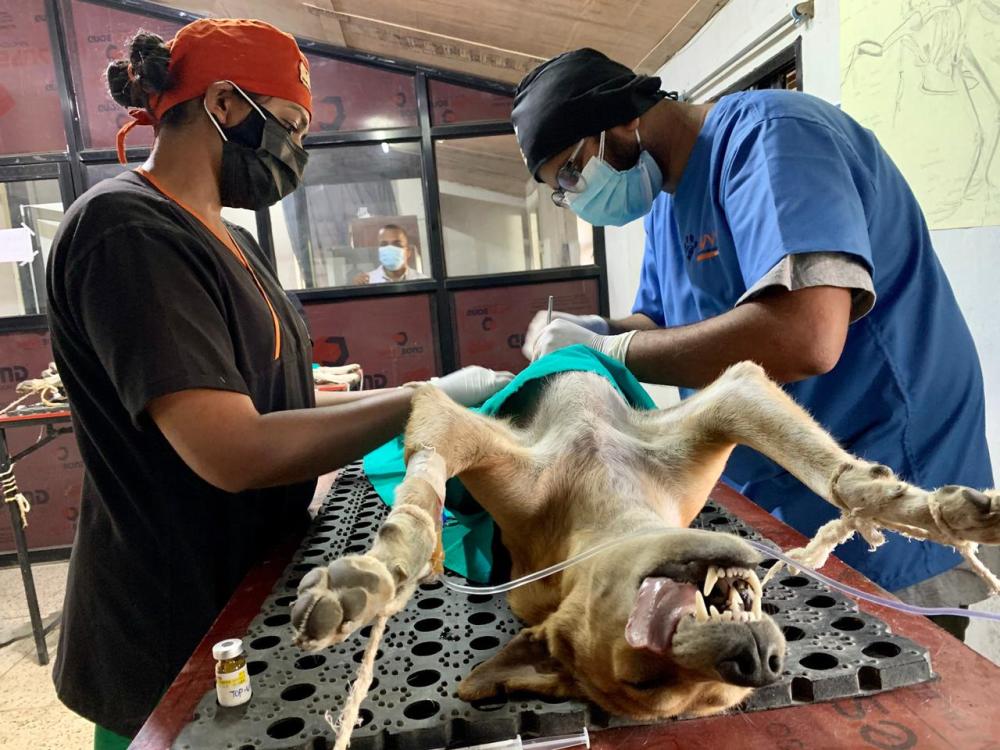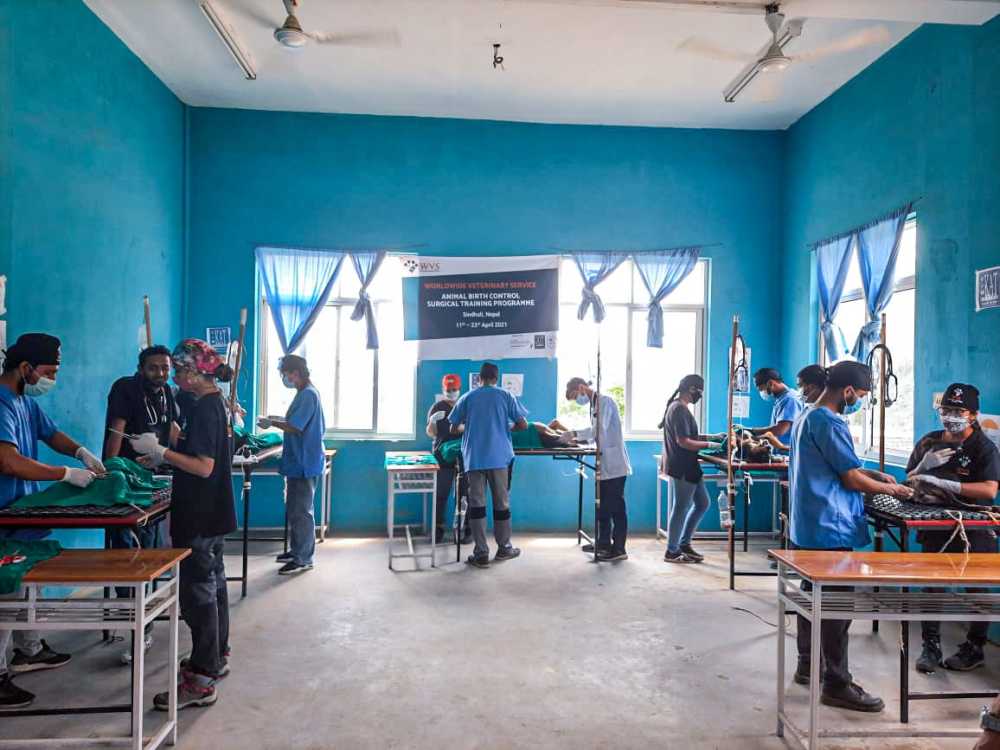WVS Taskforce; a team created to share veterinary expertise, where it is needed most.
In areas where vet care is lacking, our vets go to create positive change. They upskill local vets with world-class surgical training, treat and sterilise animals who may never have received veterinary care, and educate rural communities about One Health.
It’s a demanding and at times difficult job, but the WVS Taskforce is always up to the challenge.

Our mission: Training vets in Nepal
After a need for surgical training in Nepal was brought to our attention, the WVS Taskforce – made up of four hand-picked WVS India veterinarians – proposed taking the expert courses we run at our International Training Centres to the rural Nepalese vets.
Following months of planning, a two-phase training programme was set in motion. In a truck placed with equipment, supplies and education material, the team delivered courses in two locations – in Sindhuli district of Bagmati province and Paklihawa in Lumbini province.

WATCH: Check the highlights of our time in Nepal.
Here to tell you more about the second phase is Dr. Shruti from the WVS Taskforce.
The long journey
“Undertaking a 12-hour journey from Sindhuli to Paklihawa – from the first training location to the next – was no small feat. But, we had the picturesque landscapes of rural Nepal for company. The elusive Dhaulagiri range and jade rivers among meandering roads were by our side.”

The transformation
“We got to work the day after we arrived, working hard to convert the beat-up old classrooms into WVS-standard operating theatres and preparation rooms. Two days later, we were all systems go.”

“The first day of the course followed our usual introductory classes, including demonstration surgeries and dry practice."

"As the students of IAAS had participated in our Distance Learning Module, they were well versed with the theory component of the course. It meant we could start the practical section sooner, giving the students plenty of hands-on experience with animal birth control surgeries."

Together, the 6 participating vets and 4 veterinary assistants managed to conduct 38 spay-neuter surgeries with the help of our instructors, volunteers, and dog-catchers, before the COVID-19 outbreak in India forced the course to be cut short.
The second wave of COVID-19 in India
“There were constant rumours of lockdowns and restrictions owing to the rising concerns related to the pandemic. We undertook all precautions but were planning to finish the course as soon as possible to evade a possible lockdown.”
“Unfortunately, the news of government restrictions on all training was delivered to the host institute. We had to make the difficult decision of halting the training programme midway. With participants having completed only half the required number of surgeries for certification, we could not provide them with training certificates. It was heart-breaking to see the dejected faces of participants, some of whom have waited years to receive surgical training with WVS. It also demonstrated just how valuable our training programmes are in remote parts of the world and made our resolve stronger of going to these places and training vets therein.”

“We assured our Nepalese participants that they could come and perform their remaining surgeries at the Kathmandu Animal Treatment Centre when the restrictions were lifted, to complete their training and graduate from the course.”
Preventatives in a pandemic
We take pride in keeping health and safety at the centre of all our operations. This is even more important in a low-resource outreach setting, and among a global pandemic.
“As part of our efforts to upload our high standard of health and safety and reduce the transmission risk of COVID-19, we strictly followed government guidelines and put many preventative measures in place.”

“We conducted daily health checks for all participants entering the operating theatre, including temperature and SPO2 recordings. If an individual’s reading seemed concerning, they were sent for testing and isolation immediately. Hand sanitizers and masks were available for use in the operating theatre at all times, and social distancing was followed whenever we assembled.”
“Thanks to a collaborative effort of strictly following health and safety norms, the course was completed without any COVID-19 infections or transmissions.”
Thank You
This mission work driven by the WVS Taskforce wouldn't be possible without the support of our local and global partners.
Thank you to Marchig Trust for your ongoing support, and to the Kathmandu Animal Treatment Centre for your partnership. We're so grateful to our animal handlers, dog-catchers, and skills vet assistants for their tireless efforts in making the training programme a success, and to the Sindhuli Community Technical Institute, our host organisation, for their hospitality.
In the future, the WVS Taskforce is set to deliver its life-saving programmes in Africa. This expansion is thanks to the support of our new partners at the IDEXX Foundation.
Related Content
The mission in Nepal is just one of the many outreach projects our veterinary teams undertake every year. Visit WVS News for more about our work in rural settings – everywhere from populated islands in Tanzania to wildlife reserves in Malawi.